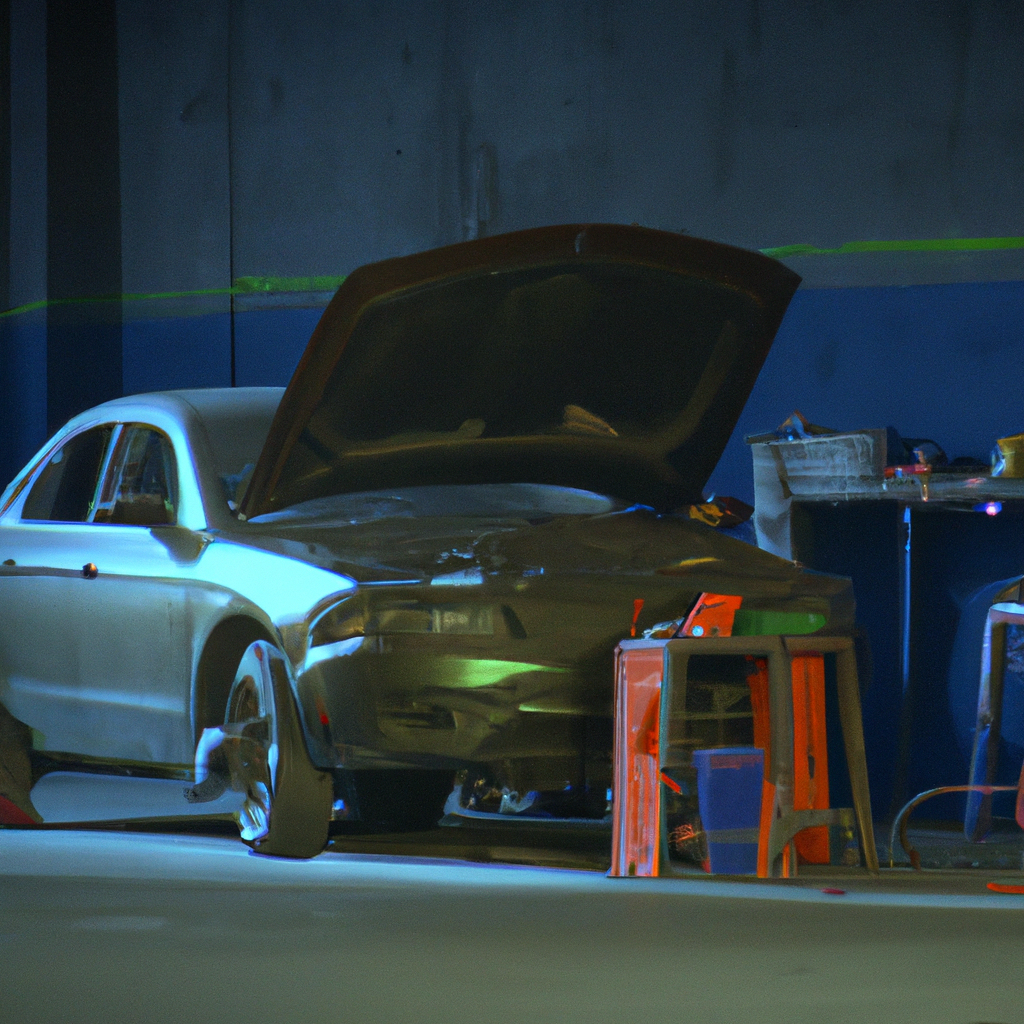- Home
- Repairing a Vehicle

Repairing a Vehicle
“Get your vehicle back on the road with expert repair services!”
Introduction
Welcome to the world of vehicle repair! Whether you are a novice or an experienced mechanic, this guide will provide you with the necessary information to help you repair your vehicle. We will cover the basics of vehicle repair, from diagnosing the problem to replacing parts and performing maintenance. We will also discuss the tools and supplies you will need to get the job done. With the right knowledge and tools, you can save time and money by repairing your vehicle yourself. So let’s get started!
How to Diagnose Common Vehicle Repair Problems
Diagnosing common vehicle repair problems can be a daunting task for even the most experienced mechanic. However, with the right knowledge and tools, it is possible to accurately diagnose and repair most vehicle issues. Here are some tips to help you diagnose common vehicle repair problems.
First, you should always start by checking the vehicle’s owner’s manual for any specific instructions or warnings. This will provide you with important information about the vehicle’s systems and components.
Next, you should inspect the vehicle for any visible signs of damage or wear. Look for any loose or broken parts, as well as any fluid leaks. If you find any of these, you should take the time to investigate further.
Once you have identified any potential problems, you should then use a diagnostic tool to help you pinpoint the exact cause of the issue. This tool will allow you to read the vehicle’s diagnostic codes and determine what is causing the problem.
Finally, you should use the information gathered from the diagnostic tool to determine the best course of action. Depending on the issue, you may need to replace a part, adjust a setting, or perform a more complex repair.
By following these steps, you can accurately diagnose and repair most common vehicle repair problems. With the right knowledge and tools, you can confidently tackle any vehicle repair issue.
Tips for Choosing the Right Auto Repair Shop

1. Do Your Research: Before selecting an auto repair shop, it is important to do your research. Look for reviews online, ask friends and family for recommendations, and read up on the shop’s reputation.
2. Ask Questions: Once you have narrowed down your list of potential auto repair shops, it is important to ask questions. Find out what services they offer, how long they have been in business, and what certifications they have.
3. Check for Licensing and Insurance: Make sure the auto repair shop you choose is properly licensed and insured. This will ensure that you are protected in the event of any accidents or damages.
4. Get an Estimate: Before committing to an auto repair shop, get an estimate of the cost of the repairs. This will help you compare prices and make sure you are getting the best deal.
5. Look for Specializations: If you have a specific type of car or repair that needs to be done, look for an auto repair shop that specializes in that area. This will ensure that you get the best service possible.
6. Ask About Warranties: Many auto repair shops offer warranties on their work. Make sure to ask about this before committing to a shop.
7. Check for Cleanliness: A clean and organized shop is a sign of a professional and reliable auto repair shop. Make sure to check the shop for cleanliness before making your decision.
By following these tips, you can be sure to find the right auto repair shop for your needs.
The Benefits of Regular Vehicle Maintenance and Repair
Regular vehicle maintenance and repair is essential for keeping your car running smoothly and safely. Taking the time to properly maintain and repair your vehicle can save you money in the long run, as well as provide peace of mind. Here are some of the benefits of regular vehicle maintenance and repair.
First, regular maintenance and repair can help extend the life of your vehicle. By taking the time to check and replace worn parts, you can prevent more serious damage from occurring. This can save you money in the long run, as you won’t have to replace major components as often.
Second, regular maintenance and repair can help improve the performance of your vehicle. By replacing worn parts and ensuring that all components are functioning properly, you can ensure that your car runs as efficiently as possible. This can help you save money on fuel costs, as well as reduce emissions.
Third, regular maintenance and repair can help keep you safe on the road. By ensuring that all components are functioning properly, you can reduce the risk of breakdowns and accidents. This can help keep you and your passengers safe, as well as reduce the risk of costly repairs.
Finally, regular maintenance and repair can help you save money on insurance costs. By keeping your vehicle in good condition, you can reduce the risk of costly repairs and accidents, which can help you save money on your insurance premiums.
Overall, regular vehicle maintenance and repair is essential for keeping your car running smoothly and safely. Taking the time to properly maintain and repair your vehicle can save you money in the long run, as well as provide peace of mind.
Conclusion
In conclusion, repairing a vehicle can be a daunting task, but with the right tools, knowledge, and patience, it can be done. It is important to research the problem thoroughly and to use the correct parts and tools for the job. Additionally, it is important to take safety precautions and to follow the manufacturer’s instructions. With the right approach, repairing a vehicle can be a rewarding experience. By choosing mechanic providers from Sevenza Service Finder you will always be a winner.
